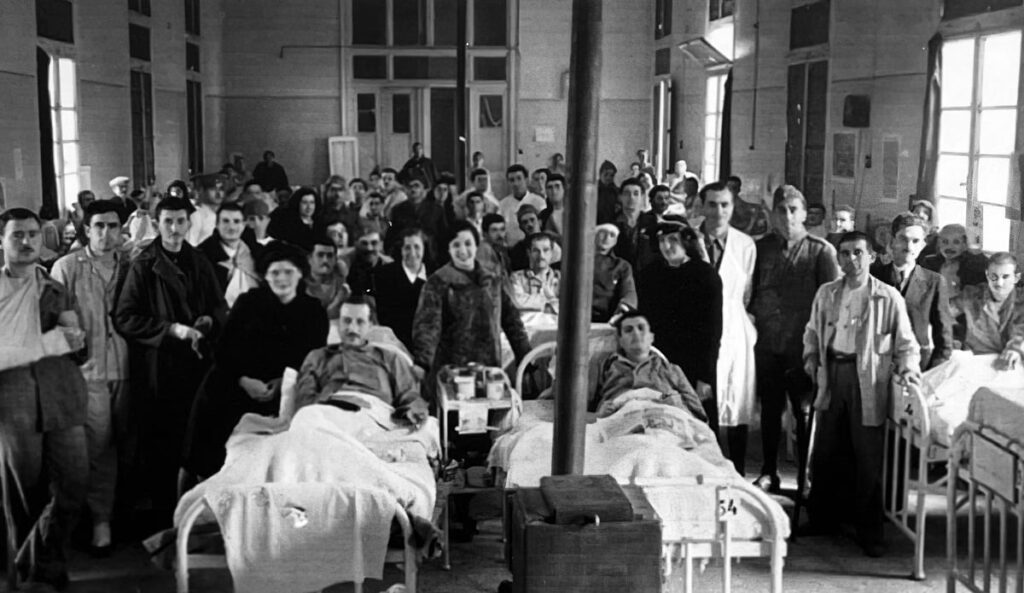On this day, in 1877 the Greek Red Cross was founded. The Red Cross is an international humanitarian organisation founded to provide assistance to victims of war. It was one of the first non-governmental organisations and is nowadays the largest and most important, operating in every corner of the world. In addition to treating the wounded and protecting prisoners of war, the Red Cross intervenes in peacetime in cases of disasters and is particularly concerned with the issue of refugees.
The occasion for the foundation of the Red Cross was the Battle of Solferino (24 June 1859), during which the French defeated the Austrians in the town of Solferino in northern Italy, after a day-long battle. Witnessing the ferocity of the fighting, the Swiss businessman Jean Henri Dunant, who was distraught by the agony of the wounded soldiers, organised a relief network with the help of local volunteers.
On his return to Geneva, Dunant wrote a book entitled “Memories of Solferino”, in which, among other things, he developed ideas for volunteer aid during the war. He suggests that the wounded and all those who care for them should be considered neutral, even on the battlefield. In August 1863, five citizens of Geneva, Gishtav Mooinier, Louis Apia, Theodore Mounoir, Guillaume Dufour and Henri Dunant, founded the International Committee for the Relief of the Wounded. On 29 October of the same year, experts from 16 countries meet in Geneva and adopt Dunant’s ideas.
A year later, on 22 August 1864, an international diplomatic conference was organised on the initiative of Switzerland and the Geneva Convention was signed, recognising the role of the Commission and the obligation of the warring parties to protect the wounded and provide them with the necessary care. The principles of the 1864 Convention were later extended to the wounded in conflicts at sea (1899 and 1907), to prisoners of war (1929) and to civilians (1949).

In 1876 the International Committee for the Relief of Wounded Persons would be renamed the International Committee of the Red Cross, as it is known today. The red isosceles cross on a white background is adopted as the emblem of the Red Cross, which is the Swiss flag with inverted colours. The Muslim countries that joined the International Organization later demanded a change of the emblem, which referred to Christianity. After negotiations it was decided that Christian countries would use the Red Cross and Muslim countries the Red Crescent. Both organisations work closely together under the umbrella of the International Committee of the Red Cross and Red Crescent based in Geneva. Israel since its foundation in 1948 has had its own organisation, the Red Star of David. In recent years it has been proposed to adopt a neutral emblem for this whole humanitarian movement, which would be the Red Cross.

The Greek Section of the Red Cross (Hellenic Red Cross) was founded on 10 June 1877 under the protection of Queen Olga, with the first president being the jurist Markos Renieris (1815-1897). On 6 October of the same year it was recognised by the International Red Cross. The aims of the Hellenic Red Cross, as described in its statutes, are, in times of war, the treatment and care of the wounded, the care of prisoners and the protection of victims of war, while in times of peace, the provision of assistance to those affected by natural disasters and epidemics, the provision of social welfare and charitable work and the promotion of public health in general. The activities of the EEA extend beyond the Greek borders, with humanitarian aid missions to various parts of the world.
The work of the Hellenic Red Cross has been the establishment of First Aid Stations, Blood Donation Centres, nursing schools, hospitals (‘Henry Dunant’, ‘Asclepeion of Voula’, ‘Korgialeneio-Benakeio’ in Ampelokipi) and the Missing Persons Search Service.
Also read: ON THIS DAY: The Rolling Stones release “(I can’t get no) satisfaction” (1965)
Translated from: SanSimera.gr


